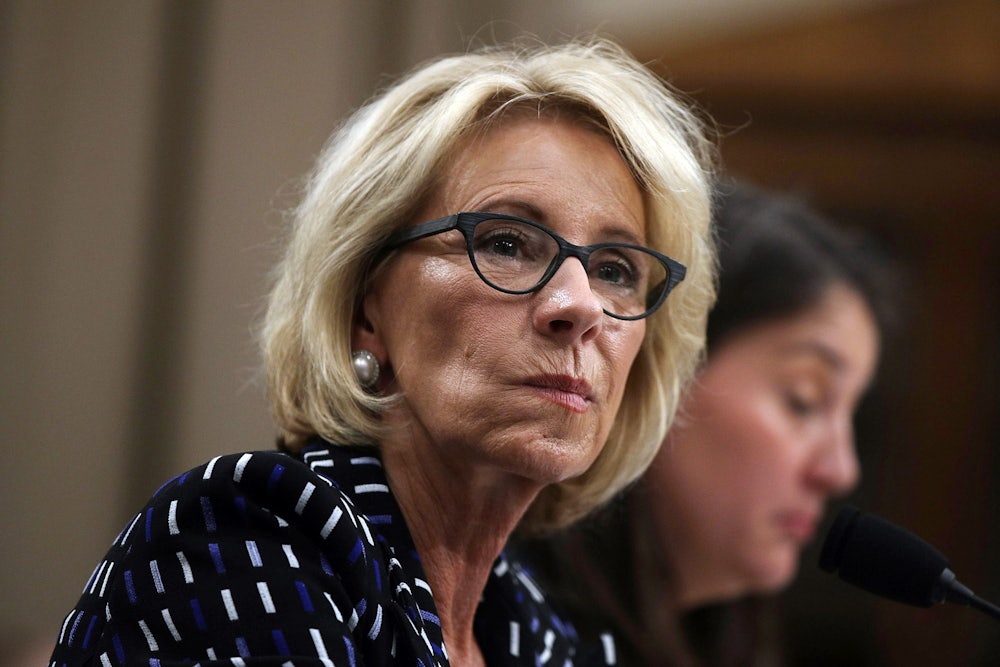The morning after she was panned for sullying the good name of Ms. Frizzle on Halloween, the education secretary acknowledged frustrations with her job in a profile for Politico Magazine. “The bureaucracy is much more formidable and difficult than I had anticipated—and I expected it to be difficult,” she told reporter Tim Alberta, who wrote that “after nine months in office, it has become apparent to the education secretary that she has limited power to transform the nation’s schools.”
DeVos, President Donald Trump’s least popular cabinet official, was confirmed by the narrowest of margins back in February. Vice President Mike Pence had to cast a tie-breaking vote to get her through, after a disastrous confirmation hearing in which she displayed what Alberta called “manifest lack of knowledge about the department’s portfolio.” She also drew grassroots opposition over her privatizing “school choice agenda,” which has suffered setbacks this year.
Alberta wrote that DeVos has learned “getting your way in Washington requires time, patience and government savvy—three things she does not have.” As a result, DeVos is “treading water”:
She has yet to fill senior staff positions, and it’s widely known that numerous prominent Republicans having turned down offers. She has struggled to acclimate to the proverbial big ship that turns slowly. Perhaps most significant, she failed to persuade the committees of jurisdiction in Congress to approve her and the department’s budget request, which would have slashed funding to other initiatives in the name of expanding DeVos’ pet cause, school choice. It amounted to an embarrassing repudiation of a president and a secretary in their first year, when there is traditionally the most political capital to spend—especially considering Republicans control both the House and Senate.
DeVos insisted that there will be “other budget cycles” in which to achieve her goals, but Alberta noted that “it won’t get any easier going forward. And taken together with other setbacks, people I spoke with across the ideological spectrum said the budget defeat was illustrative of a secretary getting more than she bargained for.”
Thomas Toch, who directs the FutureEd think tank at Georgetown University, told Alberta that “in Washington education circles, the conversation is already about the post-DeVos landscape, because the assumption is she won’t stay long. And for my money, I don’t think it would be a bad thing if she left. I think she’s been probably one of the most ineffective people to ever hold the job.” DeVos is not planning an exit anytime soon, according to Alberta: “On the K-12 front, her school-choice crusade is being downsized to what can fairly be described as a cheerleading campaign. With little actual policymaking power, DeVos has decided she can be most effective traveling the country and encouraging states and localities to do that which Washington cannot (and, in her view, should not) make them do.”
DeVos’s agenda indeed has been surging at the state level. May the resistance across America prove as frustrating to her as Washington’s has been.
